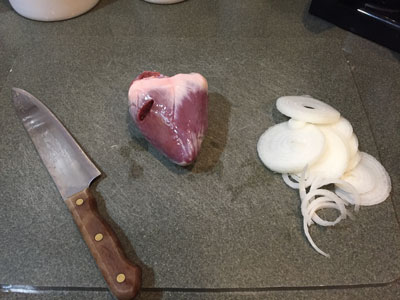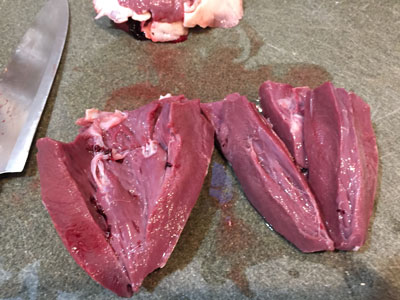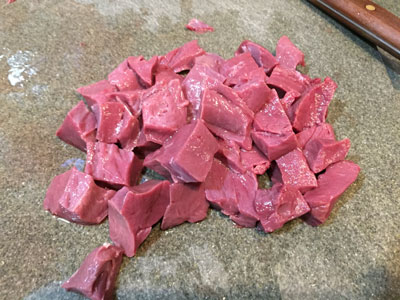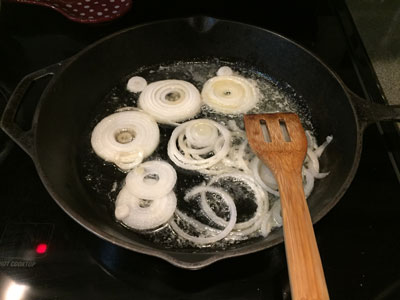The archer’s stiff muscles are beginning to shiver a bit as his warm breath circles slowly in the frosty still November air. The warming sunlight is just beginning to filter through to the forest floor, and soften the hard-frosted leaves of the previous night. While beginning to daydream about hot coffee and fresh eggs back home, he is snapped back to reality by the quick paced crunching of an approaching doe. In a stroke of good fortune, the doe moves straight into a clear shooting lane just 12 yards away and stops to look back over her shoulder. Through years of conditioning, the bowhunter knows this is the time to draw and shoot. Without conscious thought, the concentrating gaze at a tuft of fur behind the shoulder is shattered by the deer’s explosive jump as it crashes through the brush. Then silence. The well-placed arrow has quickly done its job. Soon, the successful hunter’s friends arrive to congratulate him and assist with photos of his trophy. During the field dressing process the hunter pauses to look up to his friends and sheepishly asks, “Does anyone want the heart?”

This lucky archer is smiling because he knows that sautéed heart is delicious!
Perhaps a better title for this might have been, “Heart Savor,” because I have come to know the heart as an often-discarded little known delicacy. Like many, when I started hunting, saving anything inside the body cavity was not even a brief consideration. I had heard from my father and the other old timers that heart, liver, and even kidneys were often consumed. Knowing a little too much biology, I shied away from the two filtering and metabolic organs. The heart on the other hand, I could justify to myself as it is by definition, a muscle. It’s tasty, delicious meat if prepared properly. One day I decided to try it, and I have since never left another in the leaves for the foxes. I have cooked and eaten whitetail deer, sika deer, elk, and bear heart and all of them were tasty treats.
A zip lock sandwich baggie is usually large enough to hold a deer heart, so before field dressing I usually empty out my toilet paper carrying baggie and reserve it for the heart. Simply slit open the pericardial sack surrounding the heart and slip it out. Sometimes the heart feels soft or mushy when fresh, then as it cools off it will firm right up. Cut the main arteries releasing it from lungs while dropping it into the baggie. Stash that in your cargo pocket or pack. Sometimes in the summer when traveling light I will just wedge the baggie inside the unsplit pelvis cavity, but be careful it does not dislodge on the drag out. I once had to walk back a mile to get the heart left back on the trail out. That’s right, it is worth it!
Back at home, start processing the heart by removing as much of the artery and fat as possible from the outside. Cut the heart open lengthwise and remove any clots in the chambers. Cut those two pieces lengthwise again and do the same to those pieces. Now, take a sharp fillet knife and shave off the valves and all the stringy connective tissue associated with those valves. Finish cutting the remaining pieces into bite sized morsels and place into a bowl or pan with salt water to soak. Soaking helps to remove more of the blood from the meat and reduces the iron taste. After at least an hour, I’ll prepare to cook the meat.
- The fixins for a great meal.
- Cut the heart open lengthwise and remove any clots in the chambers.
- Cut those two pieces lengthwise again and do the same to those pieces.
- Finish cutting the remaining pieces into bite sized morsels.
Victory Breakfast Skillet
Ingredients:
- 4 tablespoons of butter (or 5 slices worth of bacon grease)
- 1 small sweet onion
- ¼ tsp pepper
- ¼ tsp salt (more for soaking)
- 1/8 tsp garlic powder or steak seasoning
- 4-6 large eggs
My favorite method of cooking the heart is a breakfast skillet I call “Victory Breakfast.” Usually a couple of us will be halfway done butchering the deer in my garage, and starting to get hungry from the morning work. I’ll slip away and rinse the heart meat with cold water and pat it dry with paper towels. Thinly slice some sweet onion and begin to caramelize those in a cast iron frying pan with about half a stick of butter (or freshly rendered bacon grease) on low – medium heat. Once the onion is soft, remove the onion to a bowl for later and increase the heat to medium – high while adding more butter if necessary. Coat the heart pieces in copious amounts of salt and pepper, maybe a little garlic powder or Montreal steak seasoning, and drop them into the pan to quick fry. Stir them as they brown well on each side. While they are cooking, crack 4 to 6 fresh large eggs in a bowl and scramble. When the heart is almost done, mix in the egg and onion back into the pan. Stir well until the egg is cooked through. Sometimes when I have more time, I’ll add home-fried potatoes to the mix also.
I’ll split this into bowls for the hungry archers and signal break time. Yum, Victory Breakfast!
- Saute onions in butter or bacon grease.
- Quick fry heart pieces.













Leave A Comment